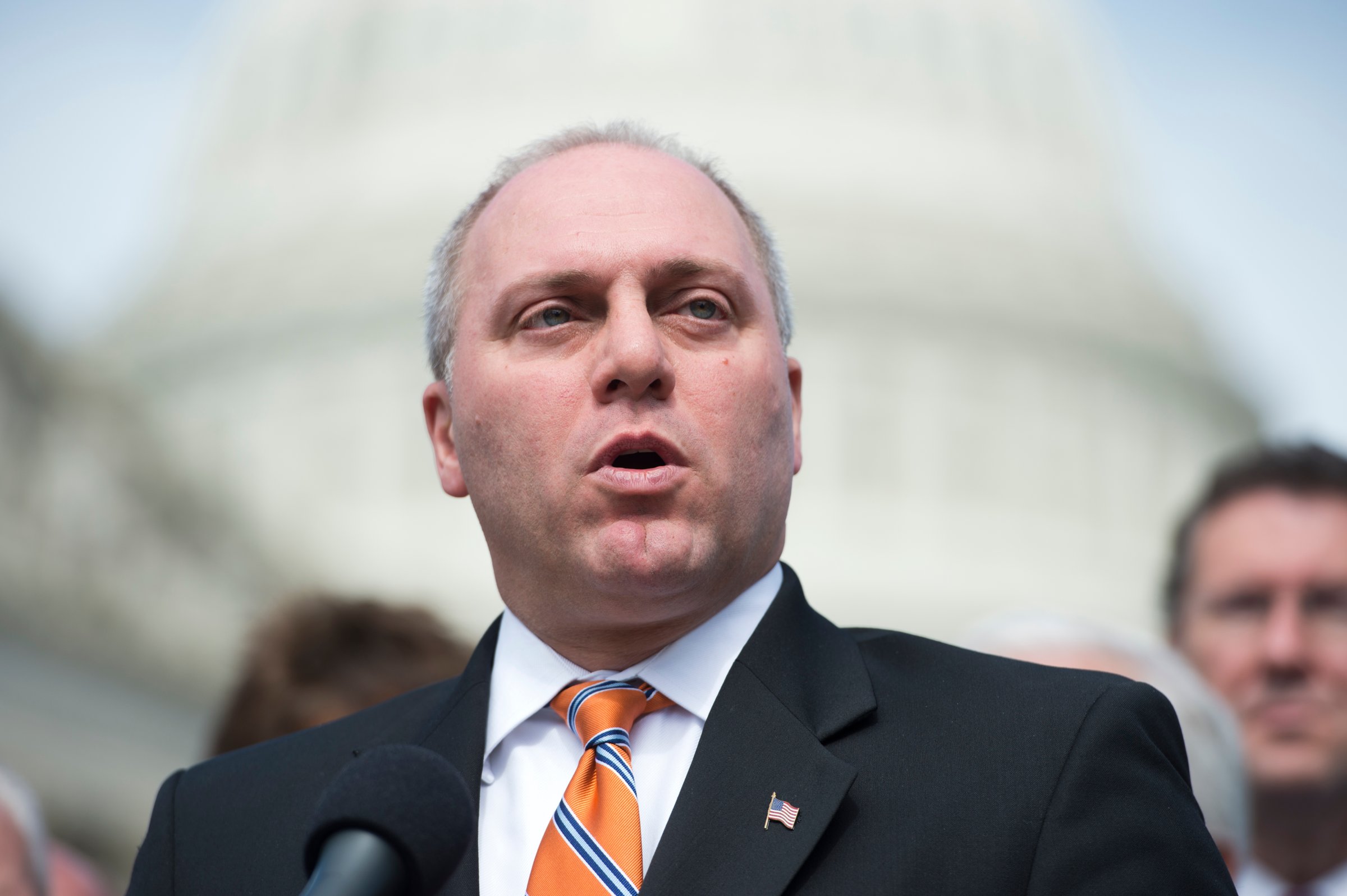
David Duke, a former wizard of the Ku Klux Klan, doesn’t think the third most powerful House Republican needs to apologize for attending one of his meetings in 2002. After all, they share a lot of constituents.
“In the district, which is his current Congressional district, I received over 60% of the vote to be the United States Senator, and then in the next year over 60% of the vote for the governorship,” Duke said on his Internet radio show on Tuesday. “Why in the world can’t someone serving the people come around the constituency and talk about a vote or something?”
It’s a question that has bedeviled Republicans in Louisiana since long before House Majority Whip Steve Scalise decided to speak to Duke’s group, the European-American Unity and Rights Organization. “The farther in the past you get the more connections you have to ‘old time’ Louisiana politics, which has always had racists and groups interested in promoting white supremacy,” said Pearson Cross, a political science professor at the University of Louisiana at Lafayette.
On Tuesday, House leaders decided to give Scalise a pass for his “error in judgement,” as Speaker John Boehner put it, noting that the Lousiana lawmaker had apologized. The principle organizer of the 2002 event, Kenny Knight, told the Washington Post that he invited Scalise, who lived in his neighborhood, and does not believe knew of the groups views on race.
But the battle over Duke’s constituents continues, even though the influence of the activist, who now rails against what he says as Zionist control of media and finance, has waned considerably in the last three decades.
Duke, who started a Klan chapter out of college, once represented a statehouse district in the same area of Louisiana that Scalise now represents. In a 1990 U.S. Senate race, after a campaign that focused on those Klan ties and saw President George H.W. Bush supporting the Democrat, Duke received 44% of the statewide vote, including a majority of the white vote. After that election, Democratic pollster Geoff Garin, who worked for the winning candidate, surveyed about 500 Louisiana voters who either supported or said there was a chance they would vote for Duke. “The white voters felt the establishment had been giving them the short end of the stick,” Garrin explained.”It was not just an angry time but also very raw.”
Issues like affirmative action and welfare registered as top concerns among this group. Of the group of Duke supporters and potential supporters, 49% said it happened sometimes or a lot that “qualified blacks are denied jobs or promotions because of racial prejudice.” But 85% of the same voters said it happened sometimes or a lot that “qualified whites lose out on jobs and promotions because blacks get special preference due to affirmative action hiring goals.” In the survey, which was conducted in December of 1990, 22% of respondents said that the one reason to support Duke was that he “has the guts to take pro-white stands, while other politicians cater to minority groups.” An additional 22% said pointed to Duke taking “a strong stand on cleaning up the welfare mess.”
By the late 1990s, when Scalise entered state politics, Duke’s constituency was still a force in the area. He received 19% of the vote in the special election to replace Republican incumbent Bob Livingston in 1999. By 2002, when Scalise addressed the group, mainstream Republicans had full control of the state GOP from Duke’s allies. “He was basically a potato by then,” said Louisiana political consultant Roy Fletcher. “You could stick a fork in him.” Duke was also living in Moscow, returning to the United States in late 2002 to plead guilty to felony mail fraud and false tax return charges.
Now Duke markets his ideas online, through a website, books and an online radio show. Scalise, for his part, is on record distancing himself from Duke as far back as 1999. “David Duke is an embarrassment to our district and his message of hate only serves to divide us,” Scalise told a local business trade publication in 2004.
On Monday, after news of his appearance broke, Scalise was even more direct. “I detest any kind of hate group,” he said.
— With reporting by Denver Nicks and Alex Rogers
More Must-Reads from TIME
- Donald Trump Is TIME's 2024 Person of the Year
- Why We Chose Trump as Person of the Year
- Is Intermittent Fasting Good or Bad for You?
- The 100 Must-Read Books of 2024
- The 20 Best Christmas TV Episodes
- Column: If Optimism Feels Ridiculous Now, Try Hope
- The Future of Climate Action Is Trade Policy
- Merle Bombardieri Is Helping People Make the Baby Decision
Contact us at letters@time.com